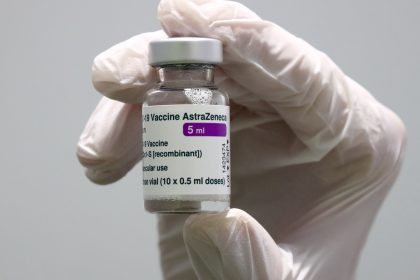Post-Labor Day Heat Wave Has DC, Much of US, Sweltering

WASHINGTON — From the National Mall here in Washington to points far north and south of our region along the Eastern Seaboard, a sizzling, post-Labor Day heat wave has people scrambling for ways to stay cool and safe.
All three major D.C.-area airports have repeatedly broken records over the last three days, and the potentially dangerous heat is expected to continue into Friday evening.
On Wednesday, even without factoring in the heat index, the temperature reached 99 degrees by mid-afternoon at Reagan International Airport, breaking a daily record that went back to 1881, when the high was 97 degrees.
At Dulles International Airport, the temperature also reached 99 degrees during the afternoon, eclipsing a record of 96 degrees set in 1985, and finally Baltimore Washington International Airport also worked its way into the 99-degree club, breaking a record of 96 degrees set in 1954.
And Wednesday was the third day in a row new records were set at these facilities at a time of year when temperatures typically range somewhere in the 80s.
According to Weather Underground, the temperature at the National Mall peaked at 96.6 degrees on Monday, climbing to 98 degrees on Tuesday, and 98.8 degrees on Wednesday.
With the humidity, the heat index ranged from 100 to 107 degrees.
In response, the National Weather Service posted a Hazardous Weather Outlook, which means people should make an extra effort to stay inside, stay cool and keep hydrated.
It’s also a time to practice a good neighbor or good family member policy, checking in on those who are more vulnerable to the adverse impacts of the heat.
The excessive heat has caused some transportation-related issues around town, notably for Virginia Railway Express, which operates commuter trains into and out of the city.
Early this week, VRE was forced to make changes to its rush-hour schedule because the extreme heat forced some speed-related restrictions. However, no passenger alerts had been posted Thursday morning.
The Washington Metropolitan Area Transit Authority also warned Wednesday that heat-related speed restrictions on some outdoor portions of Metrorail could lead to delays.
As a post on its Twitter feed explained: “We gotta’ drop it when it’s hot” because extreme heat can expand the rails on which trains run.
“For safety, trains will run at slower speeds during very hot weather,” the authority said, adding, “Please remember to stay hydrated, seek shade, and be cautious of sun-exposed surfaces.”
The National Weather Service issues advisories for high heat to warn people of the dangers.
An Excessive Heat Watch is issued when conditions are favorable for an excessive heat event in the next 12-to-48 hours.
A watch is used when the risk of a heat wave has increased, but its occurrence and timing is still uncertain. It is intended to provide enough lead-time so those who need to set their plans in motion can do so, such as establishing individual excessive heat mitigation plans.
An Excessive Heat Warning/Advisory is issued when an excessive heat event is expected in the next 36 hours. These alerts are issued when an excessive heat event is occurring, is imminent or has a very high probability of occurrence. The warning is used for high-heat conditions that pose a significant threat to life. An advisory is for less serious conditions that cause significant discomfort or inconvenience and, if caution is not taken, could lead to a threat to life.
During a heat wave like the current one, it’s important that everyone who has to be outdoors remember they are at a heightened risk for dehydration, heat cramps, heat exhaustion, heat stroke and a number of other heat-related conditions.
Heat cramps are painful muscle spasms, usually involving the abdominal muscles or legs, while heat exhaustion can begin with a moist or flushed appearance and skin that feels cool to the touch. As the condition worsens, those experiencing it will feel dizzy, nauseous, and ultimately experience weakness and a headache.
Of course, the most serious sign of overexposure to the heat is heat stroke.
Here, symptoms include hot, dry skin, weak pulse, rapid breathing and the person going in and out of consciousness.
In all three cases, the sufferer should get out of the heat, loosen any tight or heavy clothing and drink plenty of water. But safety experts advise that the water administered in such cases should not be icy cold — and ice should never be given to the person as it could affect their blood pressure and result in a state of shock.
In the case of heat stroke, medical attention should always be sought immediately.
Here in the district, a Hot Weather Emergency is in effect through Thursday, and cooling centers have been opened in several locations. An interactive map of their locations can be found here.
The city Department of Parks and Recreation is also operating a number of small outdoor parks equipped with kid-friendly fountains perfect for splashing around and escaping the summer heat.
The spray parks are open 11 a.m. to 5 p.m. until Sept. 21.
Additional information and an interactive map of their locations can be found here.
If you have to spend a prolonged period of time outdoors, consider the following to keep yourself, others and pets safe when Mother Nature turns on the blow torch:
- The hottest part of the day is usually between 1 and 6 p.m. Avoid strenuous activities, especially during this time period.
- Stay hydrated. Drink plenty of water, even if you’re not thirsty. Always take a bottle of cool water when going outside. Alcohol, coffee and snacks are integral summer elements, but they dehydrate your body, so you must limit them.
- Take breaks in the shade to cool down.
- Wear light-colored and loose-fitting clothing. Change your jeans to shorts and skirts, grab sandals from the closet, and buy a few oversized white t-shirts. Don’t forget about a sunhat and sunglasses.
- The American Academy of Dermatology recommends using a water-resistant, broad-spectrum sunscreen with an SPF of 30+. Apply enough to cover all exposed skin. Use it before going outdoors and reapply every two hours or after swimming and heavy sweating.
- If you’re inside, stay cool in air-conditioned rooms. If you don’t have air conditioning, consider paying a visit to a place that does, such as stores, malls, libraries, movie theaters and cooling centers.
- Daily cold showers reduce the risk of getting sick and boost the immune system. They are essential for heat safety as they cool the body and improve temperature regulation.
- Replace red meat and spicy food with a balanced heat-safety diet containing light meals and liquids. Summer is a perfect time to eat high-fiber products like salad, berries and pears.
- Installing a safety app with an SOS button feature on your phone is an excellent way to ensure heat safety. You never know when a heat stroke may occur, so you can use a safety app to notify your family or 911 about an emergency.
Additional resources for preparing for and beating the heat can be found at Ready.gov.
According to the National Weather Service, the excessive heat over the Eastern Seaboard and Deep South should begin to break Thursday night as the threat of showers and thunderstorms increases for the mid-Atlantic and Northeast and the Plains.
The rain chances are expected to increase through Friday with more seasonable temperatures to be in place by Saturday.
Dan can be reached at [email protected] and at https://twitter.com/DanMcCue


























